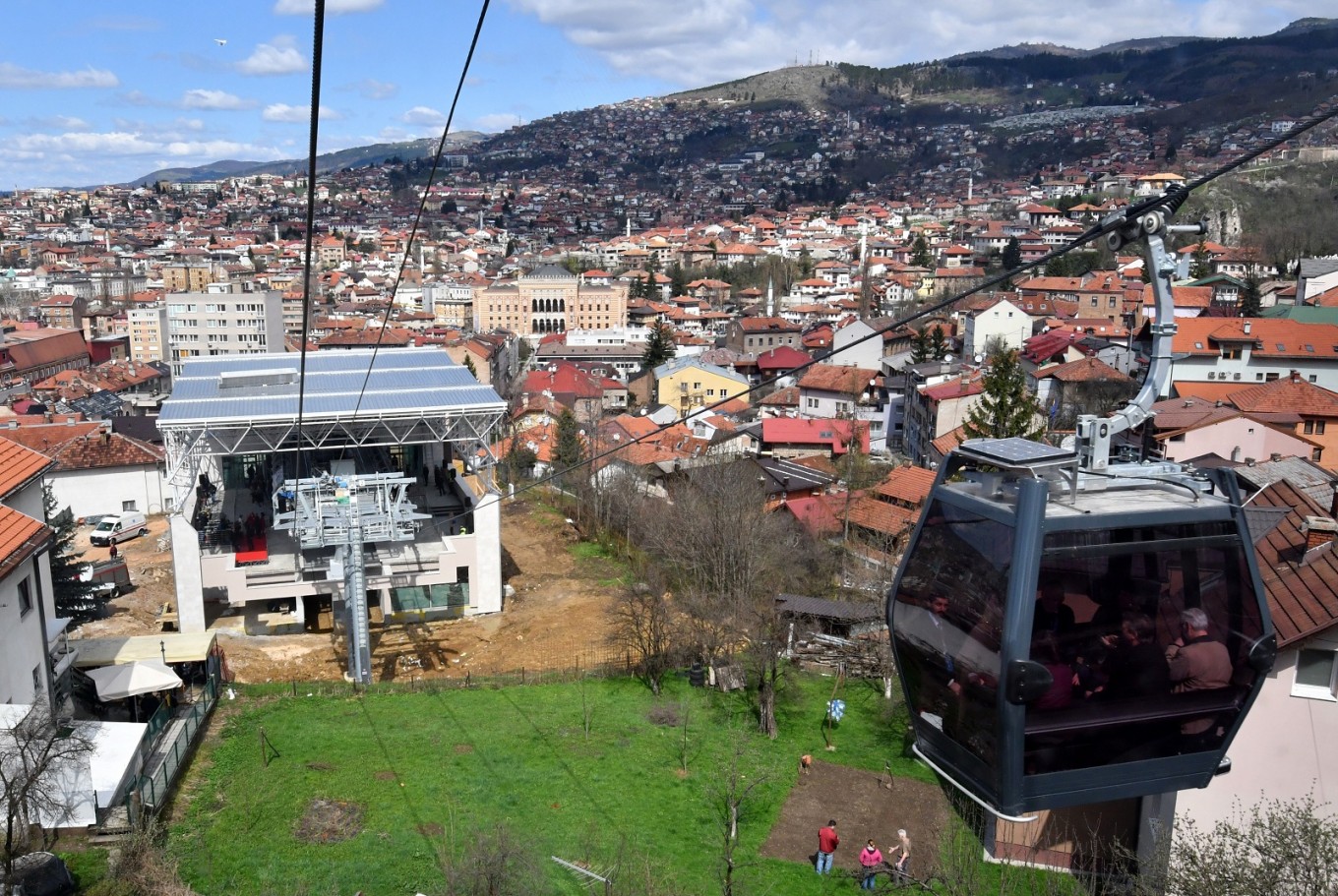Sarajevo cable car reopens 26 years after siege start
Change text size
Gift Premium Articles
to Anyone
 This photo taken on April 6, 2018 in Sarajevo shows a view from the newly-reopened Sarajevo cable car. (AFP/Elvis Barukcic)
This photo taken on April 6, 2018 in Sarajevo shows a view from the newly-reopened Sarajevo cable car. (AFP/Elvis Barukcic)
S
arajevo cable car reopened Friday, 26 years after it was destroyed at the start of the city's 1990s bloody siege, as the last reconstructed symbol of the Bosnian capital.
Hundreds of Sarajevans rushed on a sunny spring day to enjoy a breathtaking view from the Trebevic mountain overlooking the city.
The event revived memories of the pre-war period.
"It was the first view of the whole city," said singer Zijo Rizvanbegovic from the rock band Valentino, popular when Bosnia was still a part of the former Yugoslavia.
"There are several symbols of this city and I belive that the cable car, along with the national library, is the most important.
"I never sent a postcard from Sarajevo without the photo of the cable," he told AFP before climbing in one of the 33 new cabins.
The cable's decline started with the March 1992 assassination of its guard Ramo Biber, who was one of the first victims of Bosnia's 1992-1995 war.
The conflict between the country's Croats, Muslims and Serbs claimed nearly 100,000 lives.
The cable, now named after Biber, starts at 583 meters (1,900 feet) and rises to an altitude of 1,160 meters at its upper station.
It was on the Trebevic mountain that Bosnian Serb forces, that kept Sarajevo under the siege, had their positions.
Read also: Ijen crater to have cable car
The cable car now goes above the former frontline.
Edmond Offermann, a US doctor of Dutch origin who married a Bosnian woman before the war, was integral to the project.
"In 1998 I came back to Sarajevo ... I was up there in the (wartime) trenches and I realised the importance of establishing the connection between the top of the mountain and the city, the two parts that were for four years at war with each other," he told AFP.
Offermann, 58, said his motivation was to renew that connection.
He donated $4 million (3.3 million euros) for the cable's reconstruction, or nearly half of the overall amount.
"We have reconstructed the last of destroyed Sarajevo symbols," said mayor Abdulah Skaka.
Stressing that the cable's renovation would not have been achieved without Offermann and his wife, Maja he labelled it a "monument to their love."
Sarajevo's 44-month-siege, the longest in the history of modern war, killed more than 11,000 people.
The victims included 1,600 children and teenagers.






